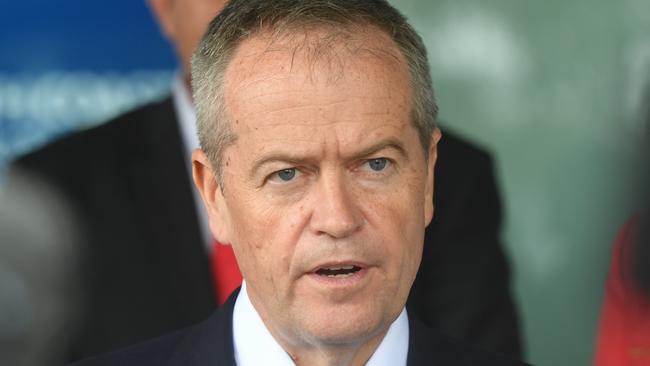ALP cancer plan ‘divisive, inequitable’
Labor’s decision to prioritise fee relief for cancer patients will open up a ‘can of worms’.

Labor’s decision to prioritise fee relief for cancer patients is a departure from its previous policies on out-of-pocket expenses, with a former adviser to Julia Gillard expressing concern the policy will open up a “can of worms with lots of unintended consequences”.
A Shorten government would direct $433 million into Medicare incentives for cancer specialists to bulk-bill more patients in follow-up consultations. It has confidentially given the broad policy parameters to the Parliamentary Budget Office for costing, and proposes the details be worked out by a Medicare review taskforce and cancer groups once in government.
While the PBO advice will not be released until the end of the campaign, Labor has said it expects the bulk-billing rate for surgeons to increase from 36 per cent to 80 per cent for cancer surgeons and from 43 per cent to 85 per cent for oncologists.
The investment, part of a $2.3 billion cancer package, has been welcomed by cancer groups, and the Australian Medical Association has declared it an acknowledgment that Medicare rebates need to increase.
Specialist and patient advocates for other conditions — such as heart disease, mental health, dental and public health — have questioned why cancer has been given priority, however Bill Shorten has suggested Labor has to start somewhere.
Former Labor health adviser Lesley Russell said it could open up “a can of worms with lots of unintended consequences”.
Dr Russell, who was an adviser to Ms Gillard when she was Labor’s health spokeswoman between 2003 and 2006, encouraged critics to come up with alternative policies, as she has done with Jennifer Doggett from the Centre for Policy Development and a former Department of Health adviser, in a recent paper that proposes much broader and complex reforms.
Doctors Reform Society president Tim Woodruff described the policy as “divisive and inequitable”.
“This policy may be very helpful for those who wish to access private care,” Dr Woodruff said. “It will have minimal impact on those cancer sufferers who use the public system. It will have no impact on those who struggle with the delays and costs for non-cancer illnesses.”
When Labor last called for suggestions, in its National Health Policy Summit in 2017, the response suggested out-of-pocket costs be targeted more broadly.
“Participants agreed that Australians have a right to universal access to world-class healthcare,” states the communique from the summit. “But they emphasised that rising out-of-pocket costs have become a critical barrier to access. They also highlighted that barriers to access are higher for some people (including indigenous Australians), in some areas (including regional, rural and remote Australia), and for some services (including mental health, allied health and dental services).”
Labor’s policy platform highlights the geographic and socio-economic disparities associated with out-of-pocket costs, however, the cancer package is targeted differently. A Labor spokeswoman said the details would be subject to consultation in government.
Labor would also: extend special Medicare rebates to all MRI machines for bulk-billed cancer scans, despite not knowing how many machines there are; invest $500m into public hospital cancer services, with the details to be negotiated with the states; and establish 13 regional radiation therapy centres, with the operators to be decided by tender.
The Coalition has proposed that patients be protected from unexpected out-of-pocket costs through a new specialists fees website and education campaign.


